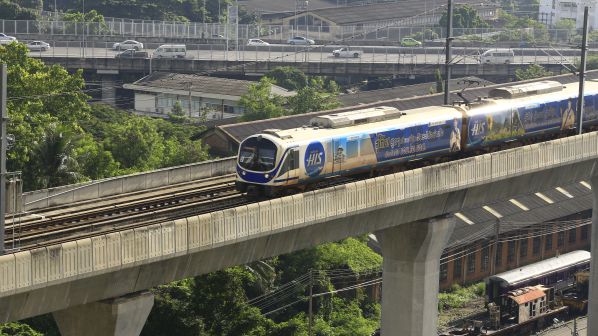The line will connect Suvarnabhumi International and Don Muang International airports, which are located to the east and north respectively of Bangkok, with U-Tapao Rayong Pattaya International on the east coast of the Gulf of Thailand.
The Eastern Economic Corridor Policy (EEC) office, which is overseeing the project, said the government committee, chaired by prime minister Mr Prayut Chan-o-cha, chose the joint venture which required the least amount of government investment.
The proposal is set to be sent for cabinet approval on May 28 and the contract could be signed by June 15 depending on the results of an Environmental Impact Assessment report.
CP is headed by Thailand’s richest man, Mr Dhanin Chearavanont, and among its reported strategic partners for the project are China’s CTIC Group, China Railway Construction, Hyundai Rotem, Siemens, Italian-Thai Development Pcl, and the Japanese Bank for International Cooperation (Jica).
The project will connect the existing 29km Suvarnabhumi Airport rail link with Phaya Thai BTS station in central Bangkok with a new 21km line to Don Muang airport. A separate 170km line will connect Suvarnabhumi with U-Tapao.
The line is expected to offer a journey time of one hour between the capital and Rayong, and the government is aiming for delivery of the project within five years. The government is also reportedly exploring the development of a second phase to Chanthaburi, with a journey time of 1h 40min, and Trat near the Thai-Cambodian border, with a journey time of two hours.
EECP
The Eastern Economic Corridor Policy is the centrepiece of the government’s $US 45bn initiative to boost investment in high-tech industries in Thailand. The government wants to transform the east into a hotspot for new investment in industries such as robotics and electric vehicles, as well as a hub for aircraft maintenance.
Thailand is also developing a 326km double-track line linking Den Chai on the Bangkok - Chiang Mai line with Chiang Rai and Chiang Khong on the Mekong River, which forms part of the border between Thailand and Lao. It also recently reopened the 1.3km section between Ban Khlong Luek in Thailand and Poipet in Cambodia, providing the first rail connection between the two countries for 45 years.

